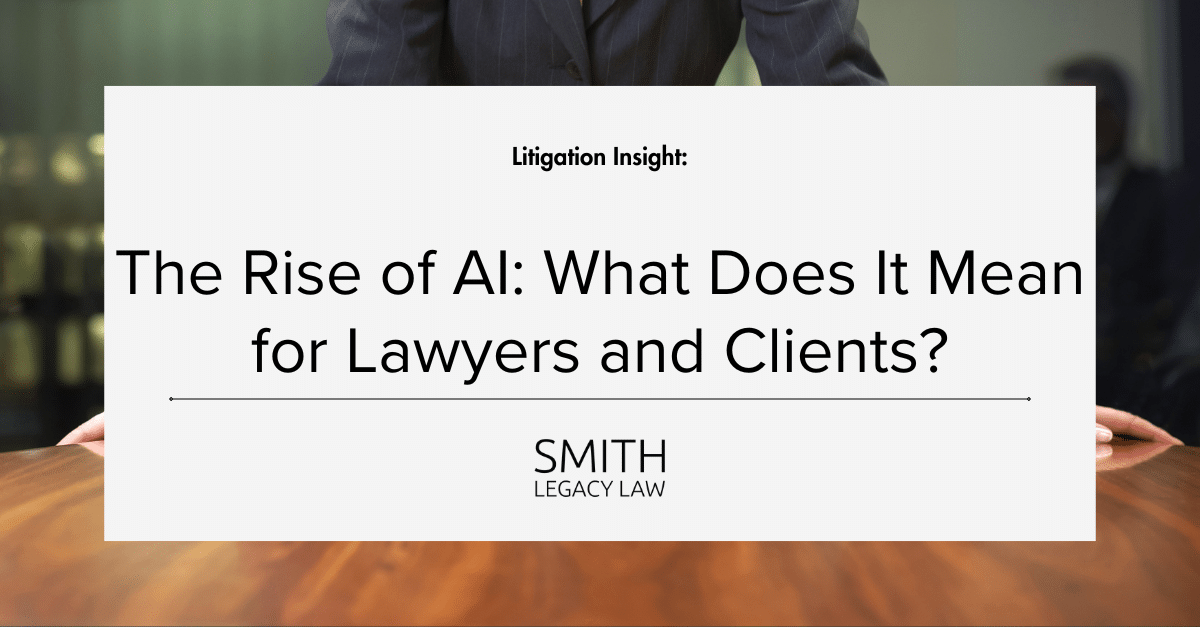Thanks to extensive press coverage, you have probably heard of the lawyer who submitted a legal brief prepared using ChatGPT that cited cases that didn’t exist. ChatGPT just made them up. Artificial intelligence (“AI”) tools like ChatGPT are increasingly being employed across industries, including by law firms. This case offers lessons on the risks and benefits of AI for both attorneys and their clients. The most important of these lessons is that AI is not a replacement for a skilled attorney.
How Did the Attorney Err in Using ChatGPT?
The lawyer admitted to using ChatGPT to research a brief. ChatGPT found six supposed cases in support of the attorney’s position which he cited in the brief he submitted in federal court. After questions were raised by opposing counsel and the attorney couldn’t produce copies of the decisions he cited, the judge found that those cases “appear to be bogus judicial decisions with bogus quotes and bogus internal citations.” The attorney claimed this was the first time he used ChatGPT as a legal research source and “was unaware of the possibility that its content could be false.” He also acknowledged he didn’t check the cases.
It’s clear that this attorney violated his ethical duties to the court by submitting false information and filings. He had an obligation to verify the results produced by ChatGPT and his lack of knowledge about the capabilities of the technology was not an excuse. He and his colleague had to respond to the judge in a hearing and were sanctioned for this conduct.
What Are the Risks of Using AI Tools?
The case brings to light the importance of understanding what AI can do, how it can be used, and its limitations. AI can be appropriately employed to assist in certain types of tasks, including research, but the results must be verified by a human user.
ChatGPT and similar tools pull information from many sources without understanding which ones are reliable. Further, as shown in this case, they can also create realistic-sounding sources. While AI might “think,” its output and conclusions are not necessarily based on actual sources.
What Should Clients Expect of AI’s Role in Helping Them With Legal Problems?
AI does not provide one of the most important functions of an attorney: counseling. Attorneys are referred to as counsellors at law for good reason. In helping clients solve their problems, skilled lawyers analyze the legal issues in a case, evaluate a client’s options, and advise as to the pros and cons of each possible course of action. The legal submissions filed by attorneys also require analysis and strategic decision-making which AI does not provide.
However, AI can benefit lawyers by assisting in more basic tasks. When deployed correctly, such tools will likely result in cost savings for clients by cutting down on the time needed for administrative or straightforward tasks.
Attorneys and clients should not abandon AI because of the risks. Instead, both sides must educate themselves as to how technology can help lawyers provide the best service and representation to clients.
